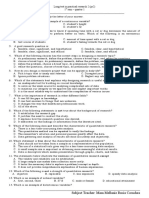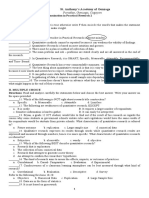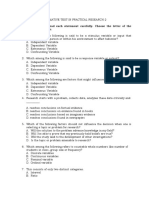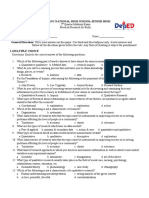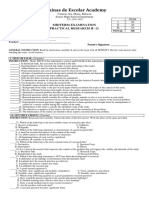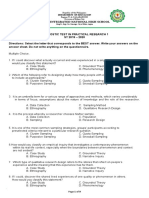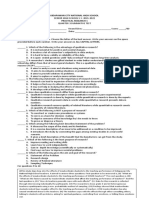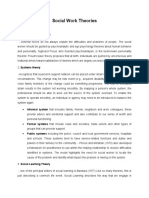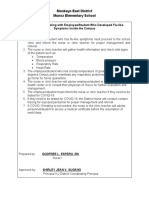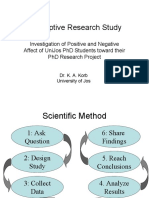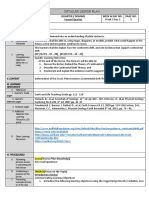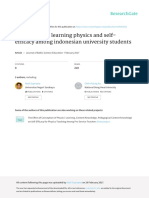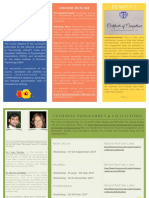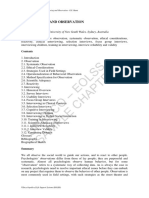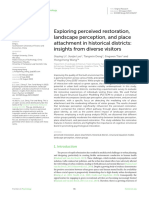Name: _______________________________________Grade Level/Section:________________Date:___________
Name of Teacher:_________________________________Subject:_______________Quarter:______ Score:__________
FIRST QUARTER EXAMINATION IN PRACTICAL RESEARCH 2
I. MULTIPLE CHOICE
Direction: Write the letter of the correct answer on the space provided.
____1.) The root word of variable is “vary” which means ________________.
a. can develop b. can view c. can change d. can make
____2.) They have values that lie along an evenly dispersed range of numbers.
a. Ordinal variables b. Interval variables c. Nominal variables d. Ratio variables
____3.) They represent categories that cannot be ordered in any particular way.
a. Nominal variables b. Interval variables c. Ordinal variables d. Ratio variables
____4.) Quantitative research puts emphasis on ____________________.
a. discovery b. control c. generalization d. proof
____5.) Methods or procedures of data gathering include all items below except one. What is it?
a. gender b. validity c. age d. educational status
____6.) It refers to the overall strategy that you choose in order to integrate the different components of the study in a
coherent and logical way.
a. Research design b. Comparative design c. Experimental design d. Quasi-experimental design
____7.) It offers the highest internal validity of all designs.
a. Quasi-experimental design b. Non-equivalent control group design
c. True-Experimental design d. Interrupted Time Series design
____8.) It employs multiple measures before and after the experimental intervention.
a. Quasi-experimental design b. Non-equivalent control group design
c. True-Experimental design d. Interrupted Time Series design
____9.) It refers to the chance failure of random assignment to equalize the conditions by converting a true experiment into this
kind of design, for purposes of analysis.
a. Quasi-experimental design b. Non-equivalent control group design
c. True-Experimental design d. Interrupted Time Series design
___10.) It involves comparing and contrasting two or more samples of study subjects on one or more samples of study subjects
on one or more variables, often at a single point of time.
a. Comparative design b. Non-equivalent control group design
c. Ex-Post Facto Research design d. Interrupted Time Series design
___11.) It sets boundaries and parameters of the study.
a. background of the research b. scope and delimitation
b. statement of the problem d. title
___12.) It cites the benefits of the study, as well as its beneficiaries.
a. background of the research b. significance of the study
c. statement of the problem d. title
II. MODIFIED TRUE OR FALSE
Direction: Write TRUE if the statement is correct and if it’s wrong, change the underlined word/s to make
the statement correct. Write your answer on the line provided.
_____________13.) Quantitative research can be expensive, time-consuming and requires statistical treatment.
_____________14.) Quantitative research is the most unreliable and valid way of conducting results, giving way to a new
hypothesis or disproving it.
_____________15.) The major characteristic of quantitative research is that conclusions are expressed in qualities and
attributes or as results of statistical treatment.
_____________16.) A major strength of quantitative methods is that it can be expensive and it requires extensive statistical
treatment.
_____________17.) Quasi-experimental lends itself for collecting more data, either by scheduling more observations or
finding more exiting measures.
_____________18.) One of the weaknesses of Quantitative research is that it can be expensive.
_____________19.) Ex-post design investigates causal relationships.
_____________20.) A variable is a characteristic of an individual or organization that can be observed and measured.
_____________21.) Neuman defines a variable as something that can make more than one value and values can be words or
numbers.
____________ 22.) Correlational studies calculate correlation coefficient.
�III. FILL IN THE BLANKS
Direction: Choose the correct answers for the following questions from the words inside the box.
TRUE EXPERIMENTAL QUASI-EXPERIMENTAL PRE-EXPERIMENTAL
SURVEY CORRELATIONAL STUDIES EX-POST FACTO DESIGN
INDEPENDENT VARIABLE DEPENDENT VARIABLE CONTROL VARIABLE
23.) These are the variables that show the effects or results or outcomes of the influence of the influence of the independent
variables. ______________________________
24.) It is used when researcher intends to provide a quantitative or numeric description of trends, attitudes or opinions of a
population by studying a sample of that population. ______________________________
25.) It lends itself to collecting more data, either by scheduling more observations or finding more exiting measures. _________
26.) These calculate correlation coefficient. _______________________
27.) It investigates causal relationships. _______________________
28.) These are variables that cause, influence or affect outcomes. ____________________________
29.) It controls for both time-related and group-related threats. ______________________________
30.) It has the least internal validity.__________________________________
31.) These are the variables that are not actually measured but they exist. ________________________________
IV. ENUMERATION
b.) Give the 6 Descriptive Research Designs a.) Give the 5 Primary Kinds of Variables
32.) ___________________________ 38.) ___________________________
33.) ___________________________ 39.) ___________________________
34.) ___________________________ 40.) ___________________________
35.) ___________________________ 41.) ___________________________
36.) ___________________________ 42.) ___________________________
37.) ___________________________
V. MATCHING TYPE
Match the importance quantitative research in other fields in column A with the statements being described in
column B. Write the letter of the correct answer on the space provided.
COLUMN A COLUMN B
_____43. Medicine a. It will help you to see if there is a market for your product also
what type of people are you best customers.
_____44. Business b. It improves the quality of life of the people suffering with
chronic disease.
c. Provides the management baseline data to make wise
_____45. Education decisions pertaining to the operation of the business
d. Improved teaching-learning activities.
_____46. Politics and Government
e. Interpret meaningful aptitude tests, IQ tests, and other
psychological test using statistical procedures or tools.
_____47. Psychology
f. Assess the opinions or preferences of the public for issues or
candidates of interest.
_____48. Agriculture
g. Determine the effectiveness of new fertilizer in the growth of
plants or crops.
VI. STATING PROBLEMS: Out from the pictures, write statements that best describe the problem that is
researchable. Be specific with your statement or problem. Identify the independent and dependent variable. Make a
research title.
49.
GOD BLESS AND GOOD LUCK! 50.
